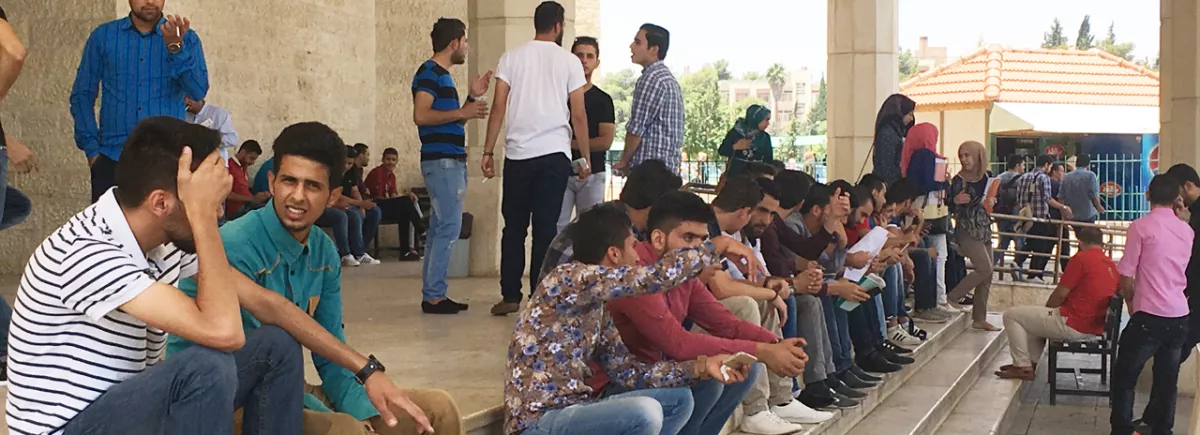
Jordan: first meeting with the universities
Related project
Providing support to the Jordanian mediaWork began in mid-July to remodel the journalism training courses at two Jordanian universities.
The first section of the
professional training project for Jordanian journalists got under way in mid-July. Run by CFI in partnership with UNESCO and forming part of the EU-funded
Support to Media in Jordan programme, this first measure will enable two leading Jordanian universities, Yarmouk University in Irbid and the Middle East University (MEU) in Amman, to adapt their journalism courses to changes in the sector and to the requirements of today's media providers in line with the UNESCO model.
Higher educational reforms in Jordan will enable universities to choose between two options, namely a more academic route to prepare students for postgraduate study and research and an alternative route focusing on professional practice.
Yarmouk University intends to maintain academic training while introducing a parallel range of practical modules, while MEU is opting for a new programme with a ratio of 60% practice to 40% theory.
Taoufik Yacoub, Associate Professor at the Institute of the Press and Information Sciences (
IPSI) at La Manouba University in Tunis, Hervé Denyons, Deputy Director of ESJ PRO in Montpellier and CFI project manager Nicolas Sanson travelled to Amman from 16-22 July 2016 to meet the academic boards of the two universities.
These discussions were an opportunity to examine the existing courses and ascertain the precise needs of the universities in terms of course redesign.
Yarmouk University currently has 570 students registered on journalism and radio/TV courses. Each department has a teaching staff of four to five professors and various associate professors, all of whom hold PhDs.
MEU's Media Department has around 200 students, mostly in radio/TV and journalism. Six hundred alumni currently work in the Gulf and other Arab countries.
The initial examination phase will enable new courses to be designed which will be put forward to the universities' academic boards for discussion and adoption in September. Phase two, from September 2016 to May 2017, will be devoted to the course implementation strategy and to train-the-trainer work with teaching staff at the two institutions.
The second section of the project will be devoted to professional training for working journalists.
It is set to begin in September 2016 with an analysis of industry needs and the design and implementation of a programme of practical training courses.


